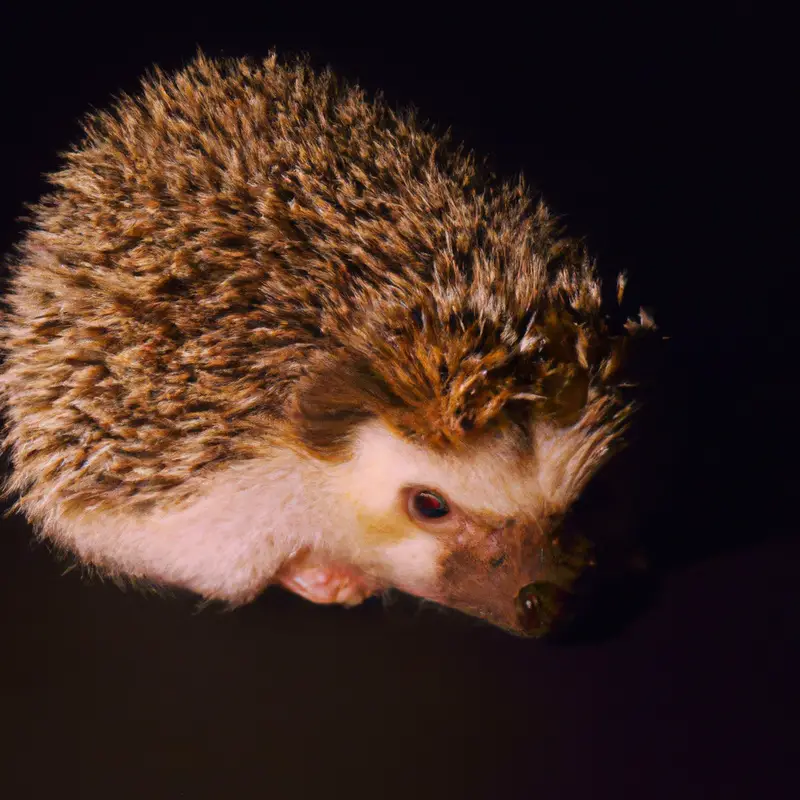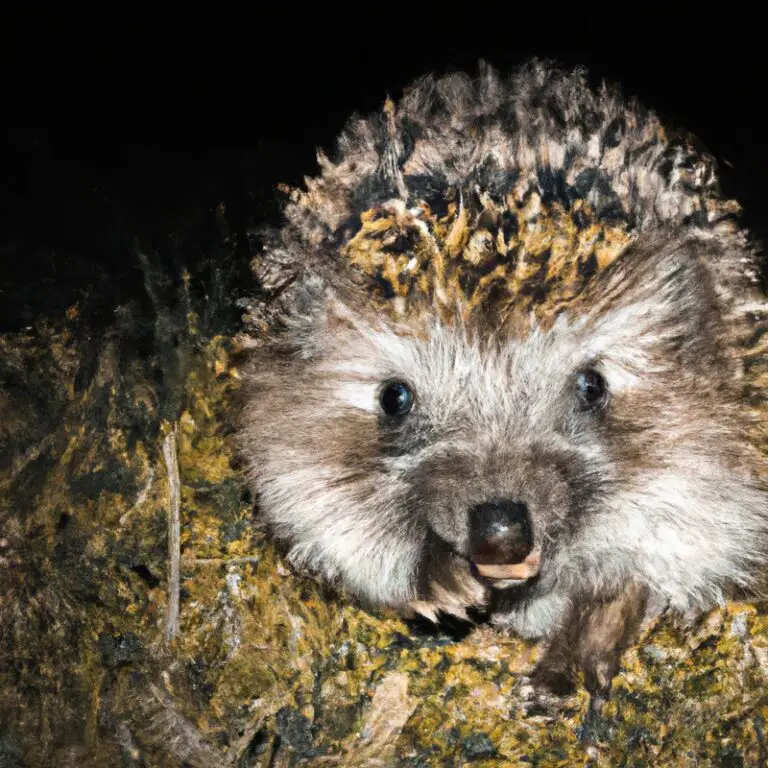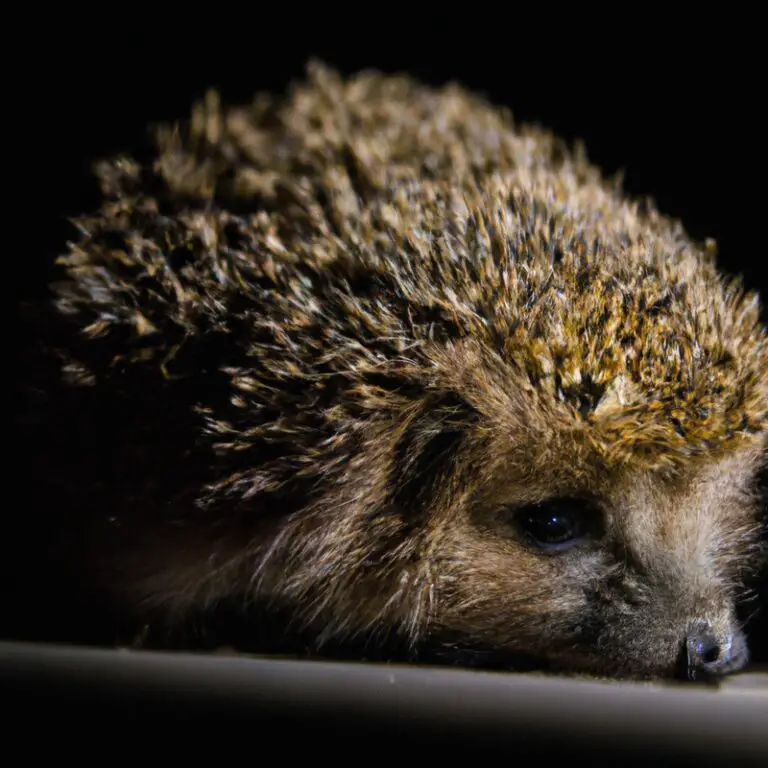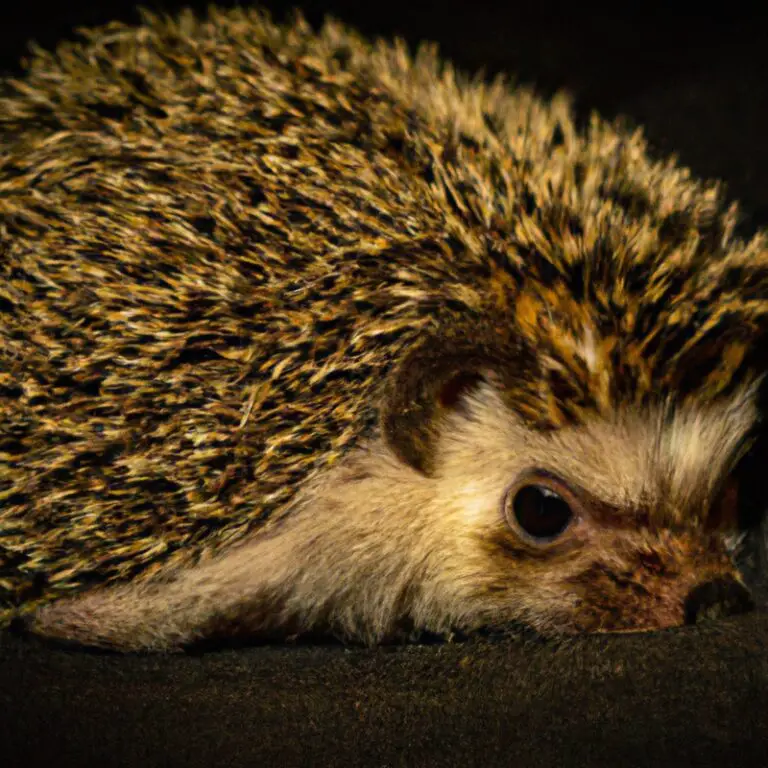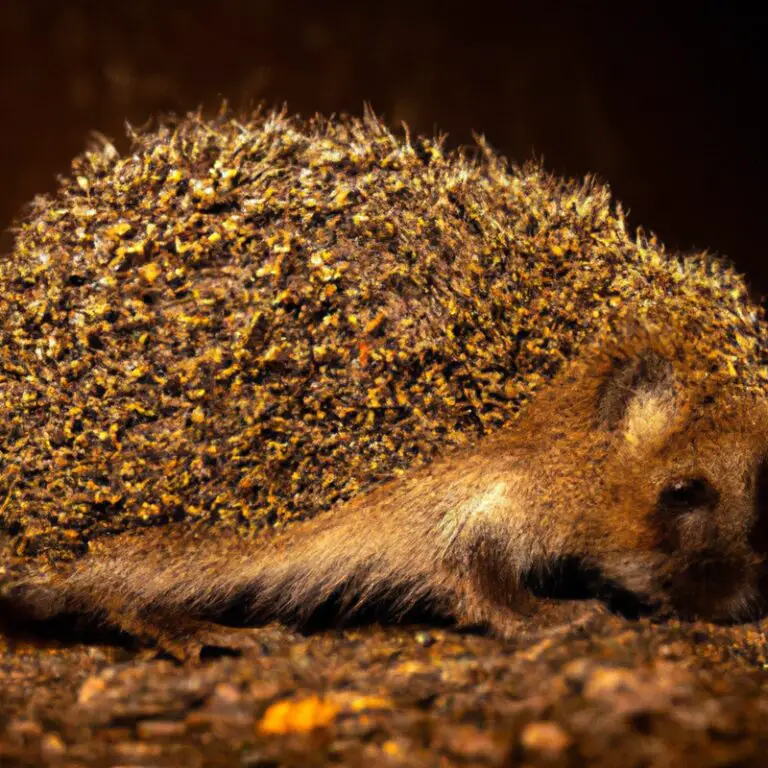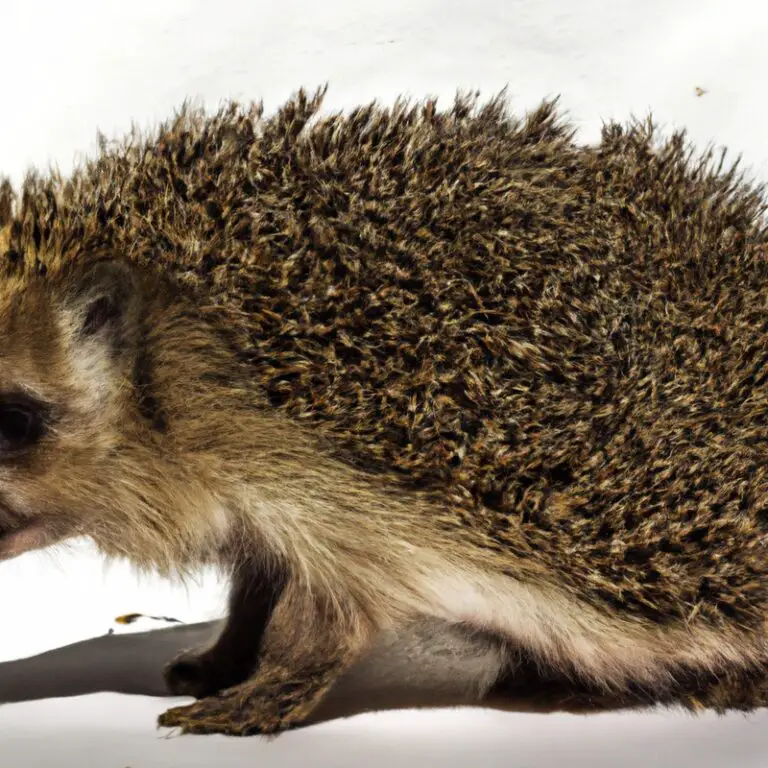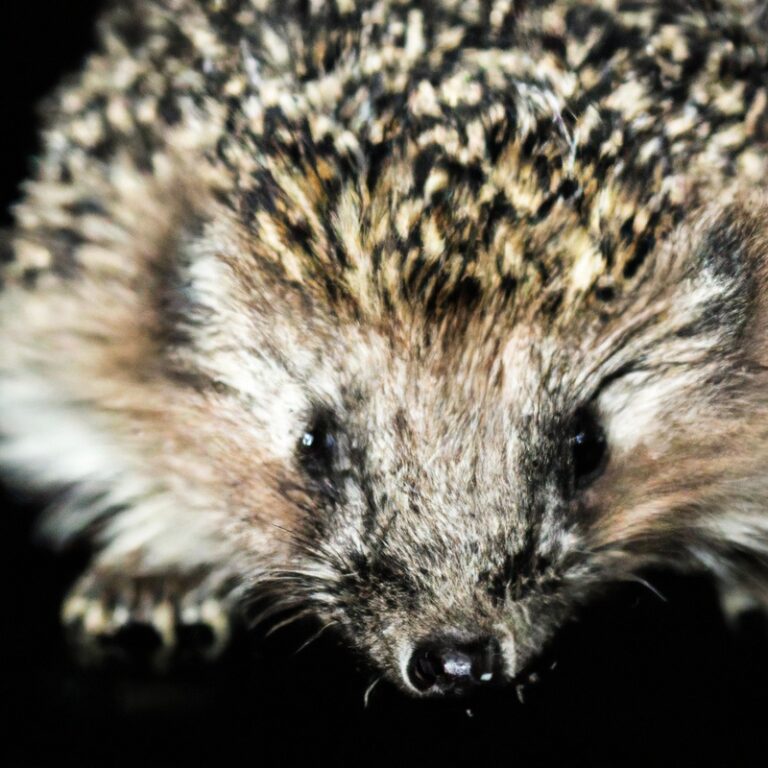What Is The Hedgehog’s Role In Permaculture Practices?
Key Takeaways:
- Hedgehogs play a crucial role in permaculture practices by acting as natural pest controllers, helping to keep populations of slugs, insects, and snails in check.
- Hedgehogs are also beneficial in permaculture gardens as they help to aerate the soil through their digging behavior, enhancing its quality and drainage.
- By providing suitable habitats for hedgehogs, permaculture practitioners can encourage these creatures to thrive, further promoting a balanced ecosystem and biodiversity.
- Hedgehogs are indicators of a healthy permaculture system, as their presence indicates a well-managed and sustainable environment.
Are you curious about the role of hedgehogs in permaculture practices? Well, you’ve come to the right place! In this article, we’re going to delve into the fascinating world of permaculture and explore how these endearing little creatures play a vital role in maintaining a balanced and sustainable ecosystem.
We’ll uncover the various benefits hedgehogs bring to pest control, soil health, biodiversity, and minimizing the need for harmful chemicals.
Plus, we’ll provide tips on how to create a hedgehog-friendly habitat in your own permaculture garden. So, let’s dive in and discover why hedgehogs are nature’s true heroes in the world of permaculture!
| Role of Hedgehogs in Permaculture Practices | Description |
|---|---|
| Natural Pest Control | Hedgehogs feed on small insects, slugs, snails, and other garden pests, helping to keep populations in check. |
| Soil Aeration | As hedgehogs move through the soil, they help to aerate it, improving drainage and promoting the circulation of nutrients. |
| Seed Dispersal | Hedgehogs may inadvertently help in seed dispersal by carrying small seeds on their spines and fur, transporting them to different areas of a permaculture site. |
| Act as Indicator Species | The presence of hedgehogs in a permaculture site can indicate a healthy ecosystem, as they require diverse habitats and specific conditions to thrive. |
| Biological Diversity | By supporting the hedgehog population, permaculture practices contribute to the overall biological diversity of a site. |
The Hedgehog’s Role in Permaculture Practices
Hedgehogs play an important role in permaculture practices.
They contribute to pest control, soil health, biodiversity, minimizing chemical usage, and habitat creation.
What is Permaculture?
Permaculture is a sustainable approach to land and resource management. It aims to create harmonious systems that mimic natural ecosystems.
With an emphasis on diversity, permaculture focuses on growing food, managing water, and building resilient communities.
It involves observing and understanding the natural patterns and cycles of the environment, and then designing and implementing regenerative practices to sustainably meet our needs. Permaculture principles can be applied to gardens, farms, and even urban areas, helping to create a more self-sufficient and resilient way of living.
Understanding Hedgehogs in Permaculture
Hedgehogs play a vital role in permaculture practices.
Here’s why:
- Natural pest control: Hedgehogs are insectivores and feed on pests like slugs, snails, and beetles. By having hedgehogs in your permaculture garden, they can help control these unwanted pests without the need for harmful pesticides.
- Soil aeration: Hedgehogs dig and burrow in the soil, which helps to aerate it. This improves drainage, prevents soil compaction, and promotes a healthier soil structure for your plants.
- Seed dispersal: Hedgehogs can ingest and disperse seeds through their droppings, promoting the growth of diverse plant species in your permaculture garden.
- Biodiversity promotion: Providing suitable habitats for hedgehogs encourages biodiversity by attracting other beneficial wildlife such as beneficial insects, birds, and amphibians.
- Nutrient cycling: Hedgehogs contribute to the nutrient cycle by consuming organic matter and releasing their feces, which adds valuable nutrients back into the soil.
By understanding and supporting hedgehogs in permaculture, you can create a more sustainable and balanced ecosystem in your garden.
Pest Control: Hedgehogs as Natural Predators
Hedgehogs play a crucial role in pest control as natural predators.
They feed on a variety of insects and pests, such as slugs, snails, beetles, and caterpillars, helping to maintain a balanced ecosystem in the garden.
Their spines and nocturnal habits keep them protected from larger predators, making them effective hunters in controlling pests.
Having hedgehogs in your permaculture practices can reduce the need for chemical pesticides, promoting a more sustainable and environmentally-friendly approach to pest management.
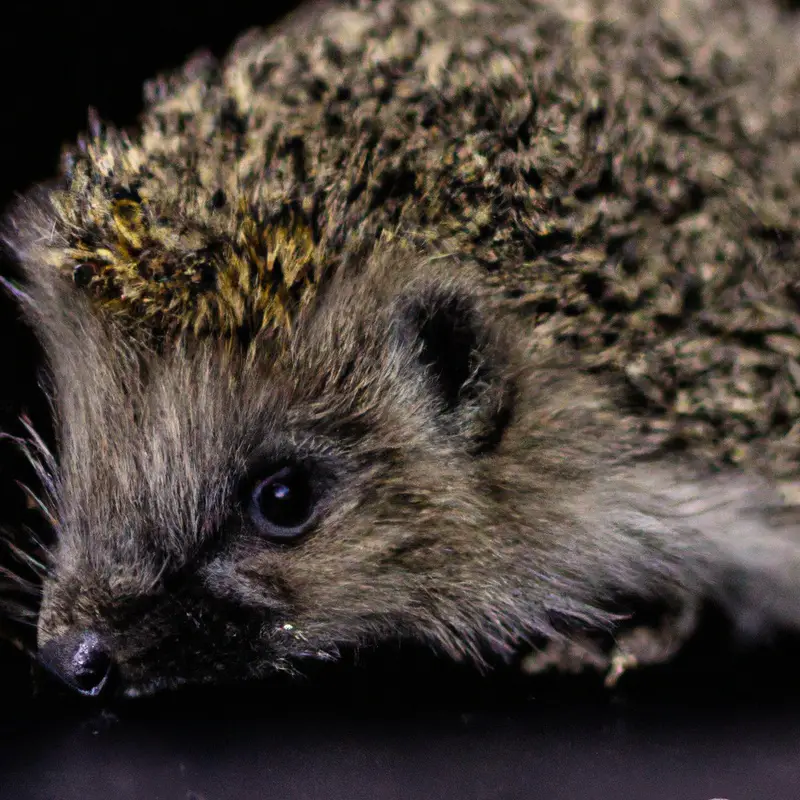
Soil Health: Hedgehogs and Soil Aeration
Hedgehogs play a valuable role in soil aeration, which is essential for soil health. As hedgehogs forage for food and move around, they create small tunnels in the soil.
These tunnels help to improve the structure of the soil, allowing air and water to penetrate more easily.
This, in turn, promotes the growth of beneficial microorganisms and enhances nutrient uptake by plants. So, having hedgehogs around can contribute to a healthier and more vibrant ecosystem.
Additionally, hedgehogs also help control pests like slugs and snails, further benefiting the overall health of your garden or permaculture system.
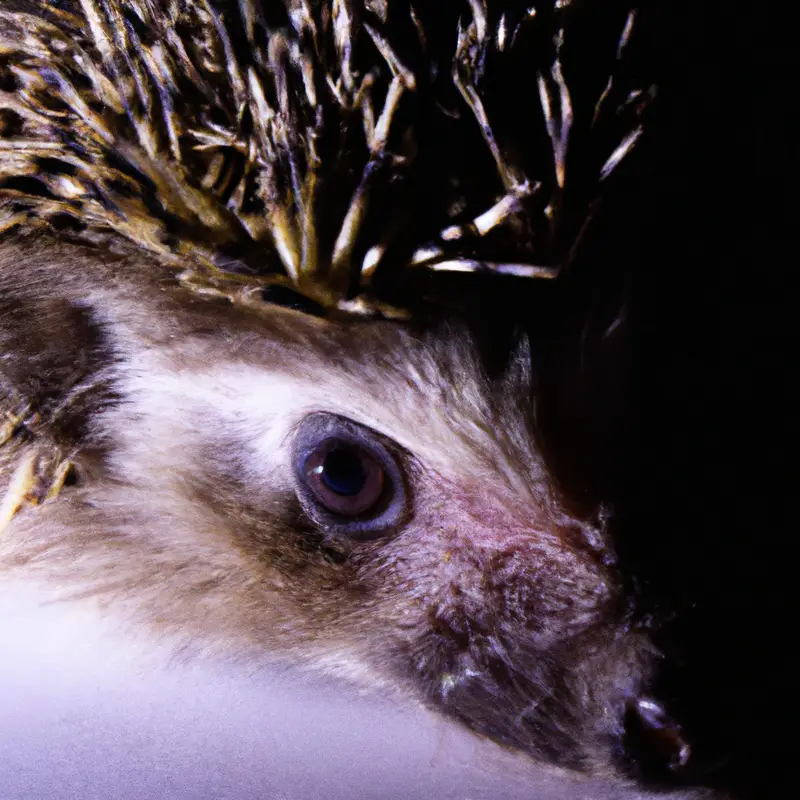
Biodiversity: Hedgehogs and Insect Control
Hedgehogs play a crucial role in insect control within permaculture practices.
They are natural predators of many garden pests like slugs, snails, and insects.
By having hedgehogs in your garden, you can reduce the need for chemical pesticides.
Their diet helps maintain a balanced ecosystem and promotes biodiversity.
Encouraging hedgehogs to inhabit your garden by providing shelter, food, and avoiding the use of toxic chemicals is a simple and effective way to control pests naturally.
Minimizing Chemical Usage: Hedgehogs as Natural Pesticides
Hedgehogs play a valuable role in minimizing the need for chemical pesticides in permaculture practices. These adorable creatures are natural pest controllers, feasting on a variety of garden pests such as slugs, snails, and insects.
By attracting hedgehogs to your garden through the creation of hedgehog-friendly habitats and the provision of food and water sources, you can create a natural balance that reduces the reliance on chemical pesticides.
Plus, it’s a win-win situation as hedgehogs benefit from the abundance of food and shelter in your garden.
Habitat Creation: Attracting Hedgehogs to Your Permaculture Garden
To attract hedgehogs to your permaculture garden, create a suitable habitat by incorporating these practices:
- Provide shelter: Leave areas of longer grass, piles of leaves, or log piles for hedgehogs to nest and hibernate.
- Ensure access: Create small gaps in fences or install ramps to allow hedgehogs to enter and exit the garden easily.
- Offer food and water: Leave out shallow dishes of water and provide a regular supply of hedgehog-friendly food, such as wet cat food or mealworms.
- Avoid pesticides: Minimize or eliminate the use of pesticides in your garden, as they can harm hedgehogs and their food sources.
By implementing these steps, you can create an inviting environment that will attract hedgehogs to your permaculture garden and help support their population.
Frequently Asked Questions (FAQs)
FAQs
1. Can hedgehogs be beneficial in permaculture practices?
Yes, hedgehogs are valuable in permaculture as they help control pests like slugs, snails, and insects. Their diet consists of these pests, allowing gardeners to reduce or eliminate the need for chemical pesticides.
2. How do hedgehogs contribute to soil health?
Hedgehogs play a role in improving soil health by aerating the soil as they move around. Their digging and foraging activities help to break up compacted soil, allowing for better water drainage and root penetration.
3. Do hedgehogs have any impact on biodiversity?
Hedgehogs have a positive impact on biodiversity as they consume a variety of pests, leading to a more balanced ecosystem. By controlling populations of pests, hedgehogs indirectly support other wildlife that rely on these pests as their food source.
4. Are there any risks associated with having hedgehogs in permaculture gardens?
One potential risk is hedgehogs accidentally damaging certain plants or disturbing their root systems while foraging. However, this can be mitigated by designing garden layouts that provide hedgehogs with dedicated spaces for foraging, away from delicate plants.
5. How can I attract hedgehogs to my permaculture garden?
You can attract hedgehogs by creating suitable habitats such as log piles, leaf piles, and hedgehog houses. Offering food like meat-based pet food or mealworms can also entice hedgehogs to visit and stay in your garden.
6. Are hedgehogs protected by law?
In many countries, hedgehogs are protected by law due to their declining populations. It is important to check your local regulations before taking any action regarding hedgehogs, such as rescuing or relocating them.
7. How can I support hedgehog conservation efforts?
You can support hedgehog conservation by creating hedgehog-friendly spaces in your garden, providing water sources, avoiding the use of chemical pesticides, and participating in local conservation programs or charities dedicated to hedgehog protection.
What do hedgehogs eat in a permaculture setting?
Hedgehogs have omnivorous diets, which means they eat both plants and animals. In a permaculture setting, hedgehogs will consume a variety of food sources.
Their diet may include insects, worms, slugs, snails, bird eggs, and even small mammals.
They are beneficial for permaculture practices as they help control pests naturally. Additionally, providing hedgehogs with access to fresh water and creating a diverse habitat with plenty of vegetation will help attract and support them in your permaculture garden.
How can I create a hedgehog-friendly habitat in my permaculture garden?
To create a hedgehog-friendly habitat in your permaculture garden, there are a few simple steps you can take:
- Provide shelter: Place a few hedgehog houses or make small piles of logs and leaves where hedgehogs can take shelter and hibernate during the colder months.
- Create openings: Cut small holes in fences or create tunnels to allow hedgehogs to move freely between gardens, giving them access to more food and potential mates.
- Avoid using pesticides: Use natural pest control methods instead of chemical pesticides, as these can harm hedgehogs and other beneficial wildlife.
- Provide food and water: Keep a shallow dish of fresh water available at ground level, and provide hedgehog-friendly food such as wet cat or dog food (not fish-based or specialized hedgehog food.
With these simple steps, you can create a welcoming and safe environment for hedgehogs in your permaculture garden.
Are there any risks or concerns associated with incorporating hedgehogs into permaculture practices?
There are a few risks and concerns to consider when incorporating hedgehogs into permaculture practices. Firstly, hedgehogs can dig and create burrows in the garden, which may disturb plant roots or disrupt the layout of your permaculture design.
Secondly, hedgehogs can sometimes eat beneficial insects, such as earthworms, which could have an impact on the overall ecosystem balance.
Finally, it is important to ensure that the garden environment is safe for hedgehogs, free from potential hazards such as poisonous plants or chemicals. Being mindful of these concerns can help ensure a successful integration of hedgehogs into your permaculture practices.
Can hedgehogs coexist with other wildlife in a permaculture garden?
Hedgehogs can definitely coexist with other wildlife in a permaculture garden. They play a valuable role by helping to control pests like slugs and snails, which can damage crops.
To create a hedgehog-friendly environment, provide shelter by leaving piles of leaves or logs.
Ensure there are no hazards, such as chemicals or sharp objects, and have a small gap under garden fences for hedgehogs to move freely. Adding water sources and native plants will also attract other beneficial wildlife to your garden.
How can I prevent hedgehogs from causing damage to my permaculture garden?
To prevent hedgehogs from causing damage to your permaculture garden, there are a few simple steps you can take:
- Install a barrier: Create a physical barrier around your garden using wire mesh fencing or low walls. This will prevent hedgehogs from accessing your plants and digging up the soil.
- Provide alternative habitats: Create hedgehog-friendly habitats elsewhere in your garden, such as log piles or shrubby areas. This will give the hedgehogs a place to shelter and forage without disturbing your plants.
- Avoid using chemicals: Be mindful of using pesticides or herbicides in your garden, as these can harm hedgehogs and other wildlife. Opt for organic and natural methods to maintain the health of your plants.
- Harvest ripe fruits and vegetables promptly: Remove ripe fruits and vegetables from your garden as soon as they are ready. Hedgehogs are attracted to the scent, so by promptly harvesting, you can reduce their interest in your garden.
By taking these preventive measures, you can enjoy the benefits of permaculture gardening while minimizing any potential damage caused by hedgehogs.
Final Verdict
Hedgehogs play a crucial role in permaculture practices by contributing to pest control, soil health, biodiversity, and minimizing chemical usage.
Their natural instincts make them valuable predators against garden pests, while their foraging habits improve soil aeration.
Additionally, hedgehogs help control insect populations, reducing the need for chemical pesticides.
To attract hedgehogs to your permaculture garden, create a hedgehog-friendly habitat with ample hiding places and a sustainable food source.
With careful consideration, hedgehogs can coexist with other wildlife in a permaculture garden, providing numerous benefits for sustainable and eco-friendly gardening practices.

